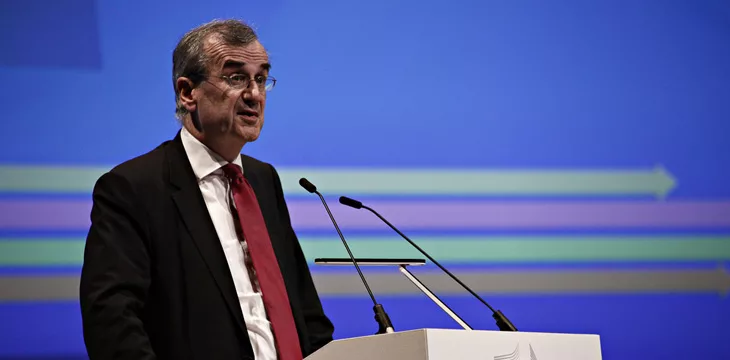|
Getting your Trinity Audio player ready...
|
As the European Union (EU) moves toward a digital euro launch, Banque de France Governor François Villeroy de Galhau has proposed a regional outlook for tokenization based on distributed ledger technology (DLT).
In his speech at the 2023 Paris Finance Forum on July 5, Villeroy outlined a pan-European DLT infrastructure for tokenized settlements. The central bank executive stated that the architecture will support the settlement of a wide range of tokenized assets in the EU region.
Villeroy noted that multiple DLT infrastructures have the unintended effects of clogging the settlement process, stifling industry innovation. Under his proposal, central bank digital currency (CBDC), tokenized bank deposits, and other digital currencies may be exchanged for value under one network.
“Providing a tokenised settlement asset could also be rounded out by a European infrastructure—in the euro area—that would bring together all tokenised assets (CBDC, deposits, financial assets), to guarantee interoperability between the different assets as well as the singleness of the currency,” Villeroy said.
The central bank governor cited a similar idea pushed forward by the Bank for International Settlements (BIS) in June, revolving around APIs to link several networks. However, critics poked holes in the plan as one that placed a premium on centralization and failed to address privacy concerns.
“Bringing together central bank money, commercial money, and different assets on the same platform, all tokenised and interacting, opens up a whole new range of possibilities,” Hyun Song Shin, BIS Head of Research, said at the time.
Villeroy’s proposal bears similarity with a submission from the International Monetary Fund (IMF) dubbed XC. The IMF could eliminate the need for wholesale CBDC developments since it creates a “global centralized ledger for cross-border payments” through tokenization.
EU lays the groundwork for tokenization
The EU has been closely monitoring developments within the DLT sector as it braces itself for a tokenized securities pilot regime based on the technology.
In June 2022, the EU completed legislation to give legal backing to a planned pilot program for financial markets. Designed to run for three years, the pilot will explore tokenizing stocks, bonds, and a wide range of financial assets.
Not to be left behind, the Bank of England (BoE) has hinted that it could be pivoting toward the tokenization of financial assets, given the myriad benefits to be gained.
Watch: Patrick Prinz discusses BSV blockchain adoption in Europe

 09-18-2025
09-18-2025 





